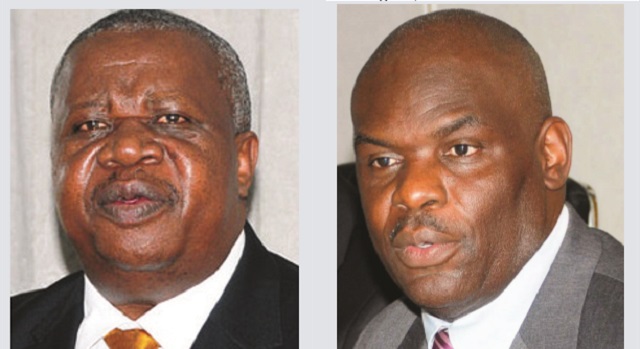
Amos Ngolobe, the Accounting Officer in the Directorate of Public Prosecutions told The Independent that the Shs820million that was returned to the treasury in the just ended financial year was because of the delays originating from Public Service Commission. He says now the office has a new financial hurdle.
“This new financial year we requested for Shs6billion for recruitments and we got just Shs200 million,” he says.
“We cannot even recruit 40 prosecutors with that money,” Ngolobe says, “There are more judicial officers than there are prosecutors. There are courts where we do not have staff. We have 400 prosecutors yet we need over 800.”
Ngolobe says although there are elaborate structures in place, the Public Service Commission ultimately holds the key since it recruits the staff.
Meanwhile, Bakibinga says the absence of an enabling law for the office of the DPP has been an impediment too. “When you have such a law, it gives you the leverage to determine your structure and pay,” he says.
A senior state attorney based in Masaka, Bakibinga says the traditional civil service in Uganda is dysfunctional and is yet to shake off its colonial elements.
“Most civil servants retire into poverty. A malnourished civil service cannot do much. How do you expect poorly paid civil servants to supervise the private sector? It is why we have ceded power to investors.”
The association is piling pressure on Ministry of Finance, Ministry of Justice and Constitutional Affairs, Ministry of Public Service and the Public Service Commission. It is now an association issue and not an administrative issue, Bakibinga said.
Public Service Commission role
The Director of Public Prosecutions Justice Mike Chibita agrees with Bakibinga on the hierarchical problems affecting prosecutors. “The structure was made in such a way to benefit people with a law degree-state attorneys. There was no law to operationalise some of the changes, so it became a problem for state prosecutors who had no hierarchy. They could not move anywhere.”
Chibita told The Independent that restructuring mechanisms were submitted to help state prosecutors but the process was encumbered by other bureaucratic procedures. “The ministry of Public Service approved some of the restructuring plans that were made and ministry of Finance had provided some money but the interviews and recruitment are done by Public Service Commission.”
Chibita says since Public Service Commission (PSC) recruits for so many government institutions, it became hard for the DPP to keep track of what was going on at PSC regarding the recruitment and promotions. He says, however, that negotiations are going on and he is hopeful the strike will be averted. The meetings include one between a cabinet sub-committee comprising the Attorney General, Minister of Finance, Minister of Public Service and the Minister of Justice and Constitutional Affairs and leaders of the association of prosecutors.
“These people; because of the law enforcement work they do, they feel like they should be at par with other judicial officers. When salary is that low, they feel like they should not be taxed. The association is spearheading the negotiations but the management is fully behind them.”
It is not clear why there is no enabling law for the office of the DPP, an institution that deals with legal issues.
****
 The Independent Uganda: You get the Truth we Pay the Price
The Independent Uganda: You get the Truth we Pay the Price


